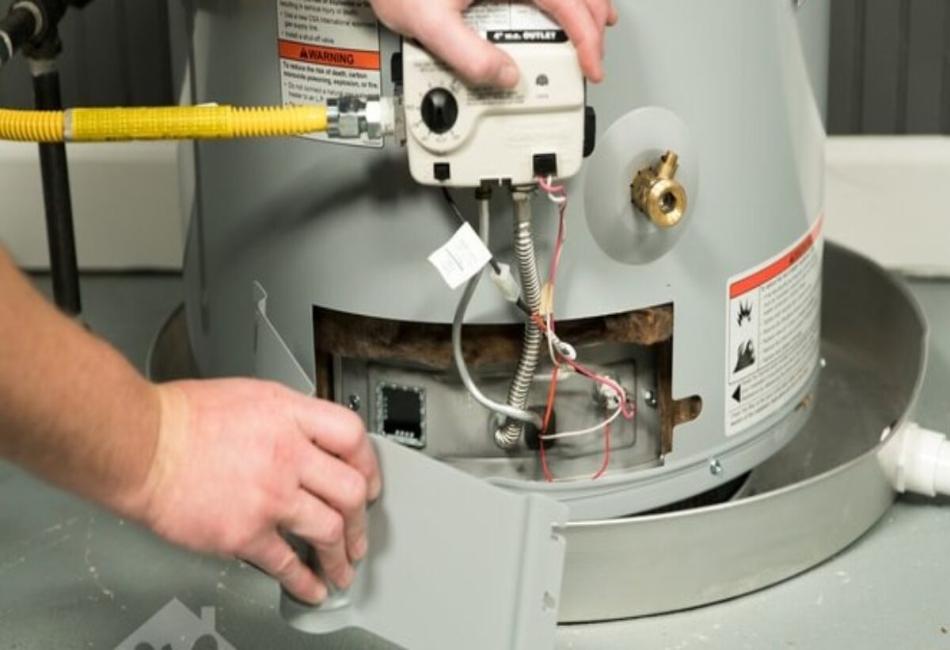For decades, when a water heater acted up, the first thing people checked was the pilot light. But today’s units are much more advanced, and so are the problems that can crop up. From electrical issues to digital controls, modern systems bring convenience, efficiency, and yes, their own set of headaches. If you’ve been searching for water heater repair tips, you’re not alone. Let’s break down what can go wrong with today’s water heaters and, more importantly, how to fix it before small annoyances turn into big expenses.
Common Electrical Failures You Shouldn’t Ignore
Unlike older models, many water heaters now rely on electronic ignition systems, sensors, and circuit boards. While these parts improve efficiency, they’re also vulnerable to failure. A tripped breaker, a worn-out heating element, or a faulty thermostat can leave you with lukewarm water or none at all. The good news? Most of these issues are fixable if caught early. But delaying can push you toward a full replacement when a simple part swap would have done the trick.
Sediment Buildup and Mineral Trouble
Another common headache comes from the water itself. Hard water brings minerals that settle at the bottom of your tank over time. This sediment acts like insulation, forcing your heater to work harder while giving you less hot water. You might notice popping or rumbling sounds as the heater struggles. Regular flushing keeps this problem under control, but skip it for too long, and you’ll pay for it in higher bills or premature failure.
Smart Controls and Sensor Glitches
Smart water heaters give you the power to set schedules, monitor performance, and even control things from your phone. But as with any tech, glitches happen. A malfunctioning sensor or buggy software update can throw your system off. Sometimes the fix is as simple as resetting the unit, but other times you’ll need a professional to recalibrate or replace the faulty components.
Pressure Problems: Too High or Too Low
When pressure gets out of balance, your water heater’s lifespan takes a hit. High pressure can stress the tank and fittings, leading to leaks, while low pressure means inconsistent water temperature and flow. Pressure relief valves are designed to manage this, but if yours is faulty, you could end up with dangerous conditions. Checking and adjusting system pressure is a small step that makes a huge difference in safety.
Corrosion and Leaks That Sneak Up on You
Even modern units aren’t immune to corrosion. Over time, the anode rod inside your tank wears out, leaving the metal walls vulnerable. Leaks often start small and go unnoticed until they cause water damage. By inspecting your unit a couple of times a year, you can catch these issues before they spiral. Replacing the anode rod is a far cheaper fix than replacing an entire water heater.
Energy Inefficiency: The Silent Problem
Your water heater might still be delivering hot water, but at what cost? Rising utility bills can be a sign that your system isn’t running efficiently. This could be due to sediment buildup, failing elements, or even outdated technology. Sometimes, simple repairs restore efficiency. Other times, upgrading to a newer, high-efficiency unit makes the most financial sense in the long run.
The Importance of Regular Maintenance
Many homeowners assume water heaters are “set and forget” appliances, but that mindset is costly. Just like your car, your water heater needs regular checkups. Annual flushing, thermostat testing, and anode rod inspections can extend the life of your system by years. Skipping maintenance, on the other hand, usually guarantees you’ll face repairs or full replacement much sooner.
When DIY Isn’t Enough
While some issues, like resetting a tripped breaker – are safe to tackle on your own, others are better left to trained professionals. Gas leaks, electrical failures, and internal component replacements come with risks that aren’t worth gambling on. That’s where Air & Plumbing Systems Inc comes in. Their licensed technicians know how to diagnose modern water heater problems quickly and accurately, saving you both time and money. With the right help, you can avoid guesswork and make sure your system gets the exact fix it needs.
Choosing Between Repair and Replacement
One big question homeowners face is whether to repair or replace. A rule of thumb: if your water heater is over 10 years old and repairs cost more than half the price of a new unit, replacement might be smarter. On the other hand, if the unit is fairly new, small fixes can keep it running efficiently for years. A trusted technician can walk you through the numbers and help you make the right call.
The Future of Water Heating
As technology advances, so will the issues we see with water heaters. Expect to encounter more connected devices, more reliance on sensors, and greater emphasis on energy efficiency. Staying on top of maintenance and working with a reliable service provider will help you navigate these changes without unnecessary stress or costs.
Final Thoughts
Gone are the days when checking the pilot light was the end-all solution. Modern water heaters bring improved efficiency and convenience, but they also come with new sets of problems. Whether it’s electrical glitches, sediment buildup, or failing sensors, knowing the warning signs puts you in control. And when the fix is more than a quick DIY tweak, calling in experts ensures your system keeps running smoothly.

